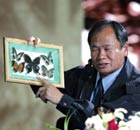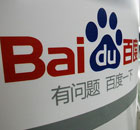Opinion
Can Chinese auto-makers learn from Toyota's crisis?
(Xinhua)
Updated: 2010-03-03 10:09
 |
Large Medium Small |
Just a few months after Toyota surrendered its status as the world's biggest vehicle maker, the Japanese auto giant suffered a credibility crisis that its rivals in China could well repeat if they fail to pay attention to the complaints of motorists.
Toyota president Akio Toyoda's deep bow to customers in the world's largest auto market on Monday might not assuage the worries of purchasers of the car bearing his name, but his damage-control move was an example for Chinese auto makers who are drastically expanding production.
The "Toyota production system" was held up as the textbook method in the auto industry. However, super efficiency and quality proved to be incompatible. Toyoda admitted sticky accelerator pedals and other flaws that led to massive car recalls were related to the company's speedy expansion in North America.
China witnessed a nearly 50-percent jump both in vehicle production and sales last year, making its auto industry a target for outside investment. However, complaints about vehicle quality from Chinese auto owners in 2009 increased by 40 percent, almost equal to the rise in output.
For China's indigenous auto-makers to survive in a domestic market crowded by foreign giants and joint ventures, Toyota's crisis also shows that an independent accessory supply system and core technologies are vital for long-term security and development.
Following a foreign company's best-selling products could never make a domestic auto-maker a world-class giant.
Chinese auto-makers should also be aware of opportunities that late-comers could have in the industrial transition from gas-engine vehicles to new energy cars.
But every opportunity is for those who are prepared and have a quality-based, customer-oriented management. Otherwise, no one will seize the opportunity.













